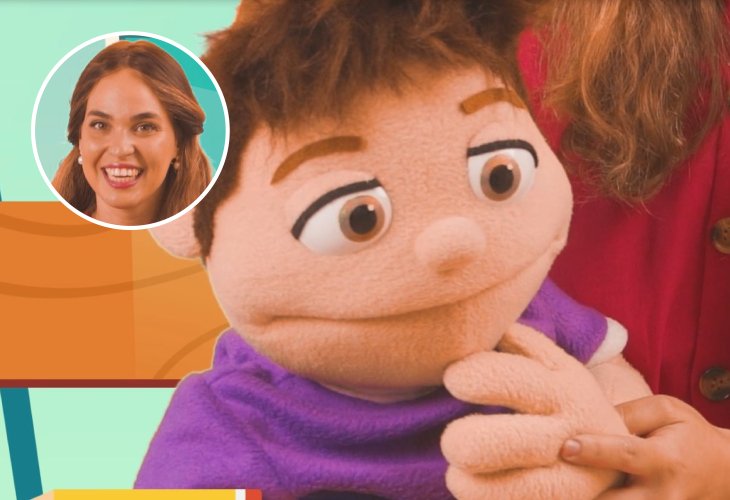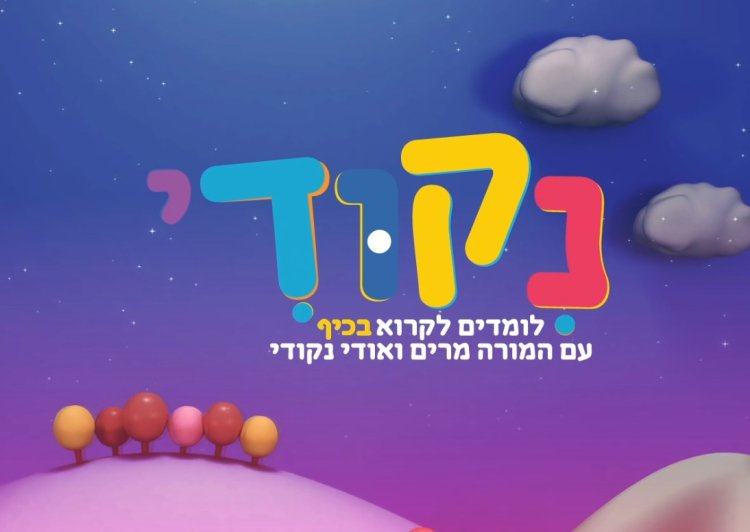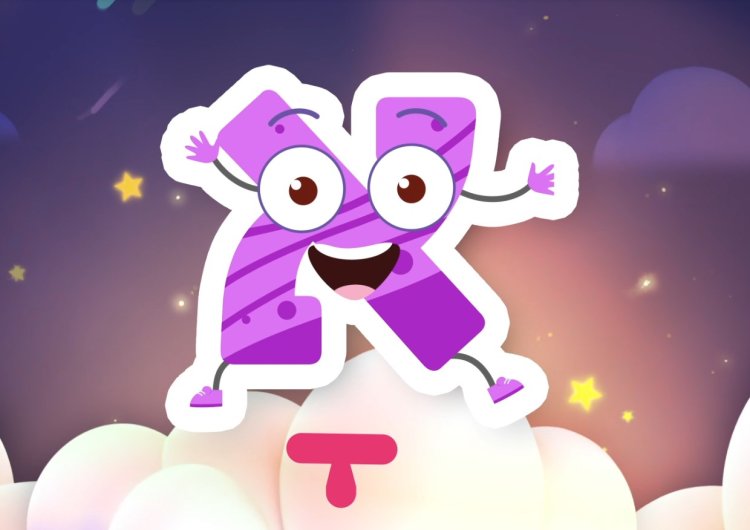Although Baby Emanuel Passed, He Inspired the 'Udi Nikudi' Doll That Has Helped Many Children
When teacher Miriam Rosenbaum gave birth to her little son, she never imagined he would face a rare syndrome and be hospitalized for about two years. Out of pain and struggle, she founded the Nakudi site, helping hundreds of children learn to read with joy. A story of mission.

What a wonderful feeling, coming home after three days with a new, sweet wrapped baby. Opening the door, smiling at the "Congratulations" signs the children drew, and deeply breathing in the scent of the tiny clothes of the newborn angel.
For Miriam Rosenbaum, things looked different. She got to return home with the new baby only a year after he was born. There were fears even before the birth. Clouds of uncertainty indicated the baby was small, that something might be wrong, but no one could fully explain what was happening. During the birth, Miriam was rushed for emergency surgery, and from there everything unraveled like in a bad dream. "The moment my husband placed the baby in the crib, his face turned pale. The nurse screamed that the baby wasn't breathing, and that was the first time little Emanuel was resuscitated."
From here, Miriam's life changed. The sweet baby was transferred to the neonatal intensive care unit, on a ventilator, and answers came to the questions that had followed Miriam since pregnancy. "Emanuel was born with a rare lung disease. He couldn't breathe on his own, and to perform this simple and daily action, he needed to receive a very large amount of medication."
"It was a different kind of motherhood. Something I hadn't known before"
For about ten years, Miriam was a beloved school teacher, and when Emanuel was born, she realized she would have to leave her job. The rare syndrome required constant medical supervision, and after a short period in which Miriam tried to care for him at home, she painfully understood she would have to leave him under the care of the medical staff at a residential hospital in Jerusalem. "I learned to be a different kind of mother. I'd travel to him four times a week, and for several hours would sit with him, hugging him and singing to him. I made sure the staff dressed him in clothes I brought from home, so he'd have my laundry scent, and I brought him myself in a different and special way. A different kind of motherhood I hadn't known before."
The new routine included constant juggling between Emanuel and the kids at home, and just then, amid the darkness, Miriam gathered strength and started establishing her life's work: the "Nikudi" site for digital learning to read, in a child-friendly way, along with the "Udi Nikudi" doll.


How do you find the energy to establish a new initiative in a difficult reality of raising a small child in danger?
"It's definitely not easy," Miriam relates to the question. "I debated a lot about whether it was right to start developing 'Nikudi' in the challenging conditions we were living. The project grew from moments of overcoming, where I did a massive internal work to detach from the sorrow and mentally commit to the mission of creating a reading-learning site that would make many children happy."
When Miriam managed to do so, she was surprised to find herself filled with joy and satisfaction that gave her the strength to cope with raising her son. "It was a gift from Hashem, and once I managed to gather strength for "Nikudi," I was filled with strength also to help Emanuel." There were moments when Emanuel was between life and death, moments when Miriam realized she needed to stop, and amidst all the hardship and pain - to calm down, let her soul strengthen, and be next to her little son who needed her. This is also why it took time for "Nikudi" to be launched out into the world.
"I remember that time when Emanuel went through severe resuscitation at the hospital. I was trembling. I felt terrible. Just a few minutes after they managed to stabilize him, my producer called me and said: 'Miriam, I urgently need you regarding the Nikudi project,' and I just told her I couldn't talk right now and would call back once I recovered. It took me a few days to relax, return to the project, and connect back with the producer."
"I didn't know if Emanuel would live long enough to reach first grade"
Today, hundreds of children know teacher Miriam and the doll Udi, learning to read through Miriam's colorful and digital lessons, combining songs, activities, and games with the Udi doll, created for the special site. "The doll was created during the time Emanuel was ill, and it is very large. Really the size of a two-year-old, like Emanuel, and I feel that thanks to him, we have another child. Udi. I had many moments when I'd look at Emanuel and wonder if he'd even make it to first grade, but on the other hand, it gave me comfort, even now, when he's no longer with us. Thanks to Emanuel, this project came to be. Thanks to him, many children have a good reading experience. They progress, succeed, and are happy, deeply affecting their present and future lives. I understand that Emanuel was born, and along with him, something huge was also born."
Why isn't it enough to teach a child reading through textbooks or copies from the teacher, like the traditional, good old way?
Miriam looks back. "'Nikudi' started from my experience as a first-grade teacher for ten years. I had many students with reading difficulties, and despite all the traditional materials and study booklets, they couldn't learn in the usual way, and I, as a teacher, was frustrated. I wanted to help the concerned mothers but, unfortunately, had no better alternative to offer that would also fit the religious community. The girls, struggling to read, no longer enjoyed the process. I felt that the study materials were burdensome for them, and they needed a more engaging way to learn. I believe that when kids enjoy learning and have fun, the material is much better absorbed because it strengthens their desire to learn and gives them a sense of achievement."
Over the years that Miriam taught first-grade classes, she developed activities and games for children to learn from and tried to fill her lessons with as much engaging content as possible, but the issue still persisted whenever the students had to deal with written materials at home.
When Miriam's little children began the reading acquisition process, she tried to teach them in the conventional ways, and experiencing the frustration with them, she understood more than ever how vast the need was for a suitable program that would serve the children's learning requirements. During the COVID pandemic, she began producing videos for students at home, teaching them reading with a doll named Udi, but the project hadn't gained momentum yet. When Emanuel was born, and Miriam became a full-time mom, she juggled between caring for Emanuel in the hospital, her other kids at home, and ultimately launched "Nikudi," a digital reading learning site for kids.
"They wouldn't accept him to first grade because he couldn't read"
Miriam surprises by revealing that the site also includes content for mothers. "Many mothers are frustrated and feel they have to persuade their child with great difficulty to learn to read. On the site, I offer guidance on how to sit with the child in the afternoon and practice with them." The responses from satisfied mothers warm Miriam's heart. "One mother shared her sadness that her child couldn't read. He was frustrated, and this experience was unpleasant for him; he was unwilling to continue trying. The big problem was that the school made it a condition: they were willing to accept the child for the first grade, only if he learned to read within a certain time frame. Naturally, the situation created tension and frustration. His mother spoke to me with hope and enrolled him in the 'Nikudi' project. She shared with me that since then, when he comes home from school, he throws his bag somewhere around the house and enthusiastically asks her: 'Mom, open Nikudi for me! I want to practice with Nikudi!' It was the first time she finally started to see progress and breathed a sigh of relief."
Another story that brings a smile to Miriam's face is about a mother who approached her after her little daughter struggled with reading.
"The girl no longer believed in herself. She would say she's terrible, that it's hard, she had almost lost hope. Since she started learning with 'Nikudi,' her perspective has changed, and she finally experienced success. The girl would sit in front of Nikudi and say: 'Look how amazing I am! How well I can read!' The mother shared with me that the reality in which her daughter suddenly saw herself differently, experiencing success, was worth everything."
The interview with Miriam is powerful, conducted a short time after the sweet baby, Emanuel, returned his pure soul to the Creator at the age of two. Miriam feels that the entire reality where Hashem led her from pain to 'Nikudi' is miraculous. "I feel that the idea to establish this initiative came to me from Hashem. It's not me. Hashem orchestrated things for them to go through me, and I feel it's a huge privilege to see that from this pain, something good emerged."
To watch Miriam Rosenbaum's "Nikudi" class in the children's world, click here >>
Want your children to continue reading easily and with joy?

